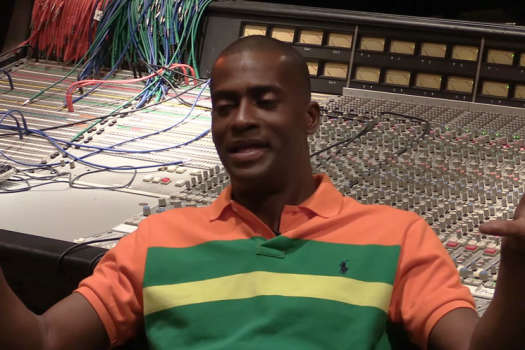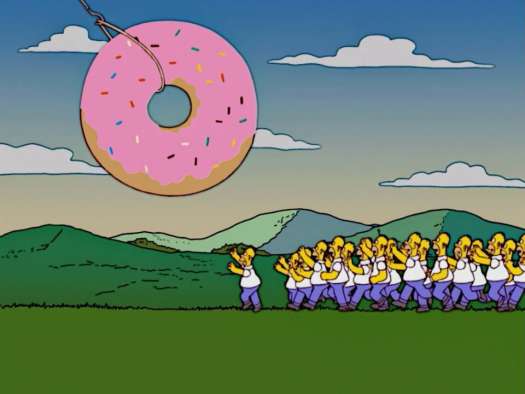Oneida drummer John Colpitts (aka Kid Millions) has consistently returned to his Man Forever project to push at the boundaries of his drumming, working with a new cast of collaborators on each release. For Play What They Want, Colpitts and Brooklyn-based ensemble TIGUE Percussion partner with some legendary guests, and the result is an expansive, writhing body of busy, ego-less playing delivered with a beating, beaming heart.
Riding in on double bass and hypnotic polyrhythms, the buoyant "You Were Never Here" opens the album with an ethereal, Yo La Tengo-supplied vocal chorus and a drone accompaniment drifting over its boiling march. Nearly nine minutes long, it's a curious, absorbing introduction, and there's a glorious shift to an experimental chamber dynamic partway through that introduces harps, dreamy, twinkling piano and a non-verbal harmony from the Quince Contemporary Vocal Ensemble that scatters it all off into curlicues of magical dust.
It's followed by the folky, myth-building psychedelia of "Ten Thousand Things," where gongs count listeners into a network of circular patterns built on tom play and hand claps while Man Forever himself spins a yarn about a nameless spider crawling across an empty desert. It's the best of Colpitts' vocal work on the album, his metre creating a slithering rhythm of its own as it winds in and out of Mary Lattimore's hypnotic harp play.
"Debt and Greed" feels like an unnecessary departure from the record's intricate Zen. Coloured with bucolic horns that lend a blissful touch to a fey lyrical articulation of the daily social trials of capitalism, its sudden burst of pop energy and sunny irony is entertaining, but also a jarring snap from the locked-in, disembodied meditations that surround it. It's the shortest and least resonating entry on the record, but still an effective palate cleanser for what comes next.
This paisley tapestry gets a dark wash on the LP's second side, when Laurie Anderson tags in to provide spoken vocals and a teetering violin to a mighty "Twin Torches." It's an epic, heavy trip that finds Anderson at her most regal, delivering celestial monologue with evocative imagism as Colpitts locks into the kit and pumps on all cylinders, honouring the moment with elemental energy and technical complexity — pure, tempestuous release that gives the avalanche symphonies of post-rock's heaviest hitters a run for their money.
Critics might point to guest spots like this to argue Play What They Want into a canon of New York art music that pre-dates Colpitts' arrival, but if this is a New York album, it's one of a post-modern present, levitating to a plane above congested, urban claustrophobia, arriving at mountainous heights too glorious to be shared with skyscrapers.
(Thrill Jockey)Riding in on double bass and hypnotic polyrhythms, the buoyant "You Were Never Here" opens the album with an ethereal, Yo La Tengo-supplied vocal chorus and a drone accompaniment drifting over its boiling march. Nearly nine minutes long, it's a curious, absorbing introduction, and there's a glorious shift to an experimental chamber dynamic partway through that introduces harps, dreamy, twinkling piano and a non-verbal harmony from the Quince Contemporary Vocal Ensemble that scatters it all off into curlicues of magical dust.
It's followed by the folky, myth-building psychedelia of "Ten Thousand Things," where gongs count listeners into a network of circular patterns built on tom play and hand claps while Man Forever himself spins a yarn about a nameless spider crawling across an empty desert. It's the best of Colpitts' vocal work on the album, his metre creating a slithering rhythm of its own as it winds in and out of Mary Lattimore's hypnotic harp play.
"Debt and Greed" feels like an unnecessary departure from the record's intricate Zen. Coloured with bucolic horns that lend a blissful touch to a fey lyrical articulation of the daily social trials of capitalism, its sudden burst of pop energy and sunny irony is entertaining, but also a jarring snap from the locked-in, disembodied meditations that surround it. It's the shortest and least resonating entry on the record, but still an effective palate cleanser for what comes next.
This paisley tapestry gets a dark wash on the LP's second side, when Laurie Anderson tags in to provide spoken vocals and a teetering violin to a mighty "Twin Torches." It's an epic, heavy trip that finds Anderson at her most regal, delivering celestial monologue with evocative imagism as Colpitts locks into the kit and pumps on all cylinders, honouring the moment with elemental energy and technical complexity — pure, tempestuous release that gives the avalanche symphonies of post-rock's heaviest hitters a run for their money.
Critics might point to guest spots like this to argue Play What They Want into a canon of New York art music that pre-dates Colpitts' arrival, but if this is a New York album, it's one of a post-modern present, levitating to a plane above congested, urban claustrophobia, arriving at mountainous heights too glorious to be shared with skyscrapers.




